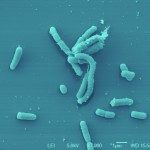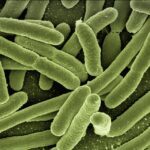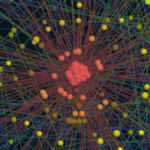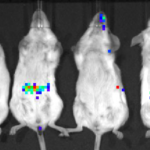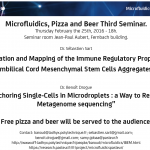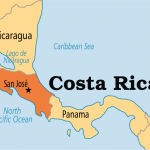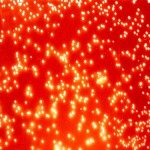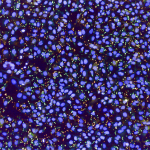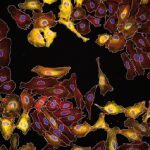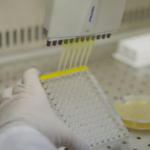Javier Pizarro-Cerda obtained B.Sc. and M.Sc. degrees from the University of Costa Rica while working in the laboratory of Edgardo Moreno, studying the adaptations of the outer membrane of the Gram-negative pathogen Brucella abortus to cationic peptides. He then obtained a D.E.A. and a Ph.D. from the University of Aix-Marseilles while working in the laboratory of Jean-Pierre Gorvel, identifying the intracellular trafficking of Brucella abortus in epithelial cells. Subsequently, he joined the laboratory of Pascale Cossart at the Pasteur Institute in Paris to investigate signaling cascades triggered by the Gram-positive pathogen Listeria monocytogenes during invasion of host mammalian cells. In 2002 Javier Pizarro-Cerda joins the Pasteur Institute as a permanent researcher and obtains his first grant from the French Ministry of Research. Since, he has been involved in local (Pasteur Institute Transversal Programs), national (French National Agency for Research, Defense Innovation Agency) and international (ERANET, Systems X, National Institutes of Health) research initiatives, investigating the adaptations of bacterial pathogens to intracellular life. He has been actively involved in teaching and has participated in practical and theoretical courses in France, Argentina, Costa Rica, Grèce and China. During his career, Javier Pizarro-Cerda has developed his research as invited investigator in different international laboratories including the Center for Microscopy & Microanalysis (Queensland University, Australia), the Weizmann Institute (Rehovot, Israel), the University of Texas-Southwestern Medical Center (Dallas, USA), the Max Planck Institute for Infection Biology (Berlin, Germany) and the Biozentrum (Basel, Switzerland). In 1998, Javier Pizarro-Cerda obtains the Costarrican National Award for Science ‘Clodomiro Picado-Twight’, in 2012 he becomes member of the Costarrican Academy of Sciences and in 2015 he receives the High Chamber Medal from the French Senate for his contribution fostering interactions between France and Latin America. In 2016, Javier Pizarro-Cerda becomes head of the ‘Systems Biology of Bacterial Infections’ Group and is promoted as Research Director at the Pasteur Institute. In 2017 he receives the ‘Canetti Prize’ from the Pasteur Institute Scientific Council for his global contributions to the field of infectious diseases and becomes head of the Yersinia Research Unit as well as Director of the World Health Organization (WHO) Collaborating Reference and Research Centre for Yersinia. In 2018 he becomes member of the WHO International Roster of Experts (Plague Panel) while in 2019 Javier Pizarro-Cerda is admited as member of the Academia Europaea. In 2022 Javier Pizarro-Cerda becomes deputy director of the National Reference Laboratory ‘Plague and Other Yersinioses’.
Click to view graph
Connections
Click to view timeline
Timeline
Transversal Projects
Projects
Software
Tools
Former Teams
CV
Publications
Download-
2024Review of genotyping methods for Yersinia pestis in Madagascar., PLoS Negl Trop Dis 2024 Jun; 18(6): e0012252.
-
2024Determinants of bacterial survival and proliferation in blood., FEMS Microbiol Rev 2024 May; 48(3): .
-
2024A novel cgMLST for genomic surveillance of Yersinia enterocolitica infections in France allowed the detection and investigation of outbreaks in 2017-2021., Microbiol Spectr 2024 Apr; (): e0050424.
-
2024Staphylococcus aureus NAD kinase is required for envelop and antibiotic stress responses., Microbes Infect 2024 Mar; (): 105334.
-
2024Multiple Introductions of Yersinia pestis during Urban Pneumonic Plague Epidemic, Madagascar, 2017., Emerg Infect Dis 2024 Feb; 30(2): 289-298.
-
2023Genome-Based Characterization of Listeria monocytogenes, Costa Rica., Emerg Infect Dis 2023 Dec; 29(12): 2566-2569.
-
2023The surveillance of plague among rodents and dogs in Western Iran., PLoS Negl Trop Dis 2023 Nov; 17(11): e0011722.
-
2023Traceability, virulence and antimicrobial resistance of Yersinia enterocolitica in two industrial cheese-making plants., Int J Food Microbiol 2023 Aug; 398(): 110225.
-
2023Draft Genome Sequences of Tsukamurella sp. 8F and 8J Strains Isolated from Social Wasps (Vespidae; Polistinae: Epiponini)., Microbiol Resour Announc 2023 May; (): e0023723.
-
2023Reply to Barton et al: signatures of natural selection during the Black Death., bioRxiv 2023 Apr; (): .
-
+View full list of publications

